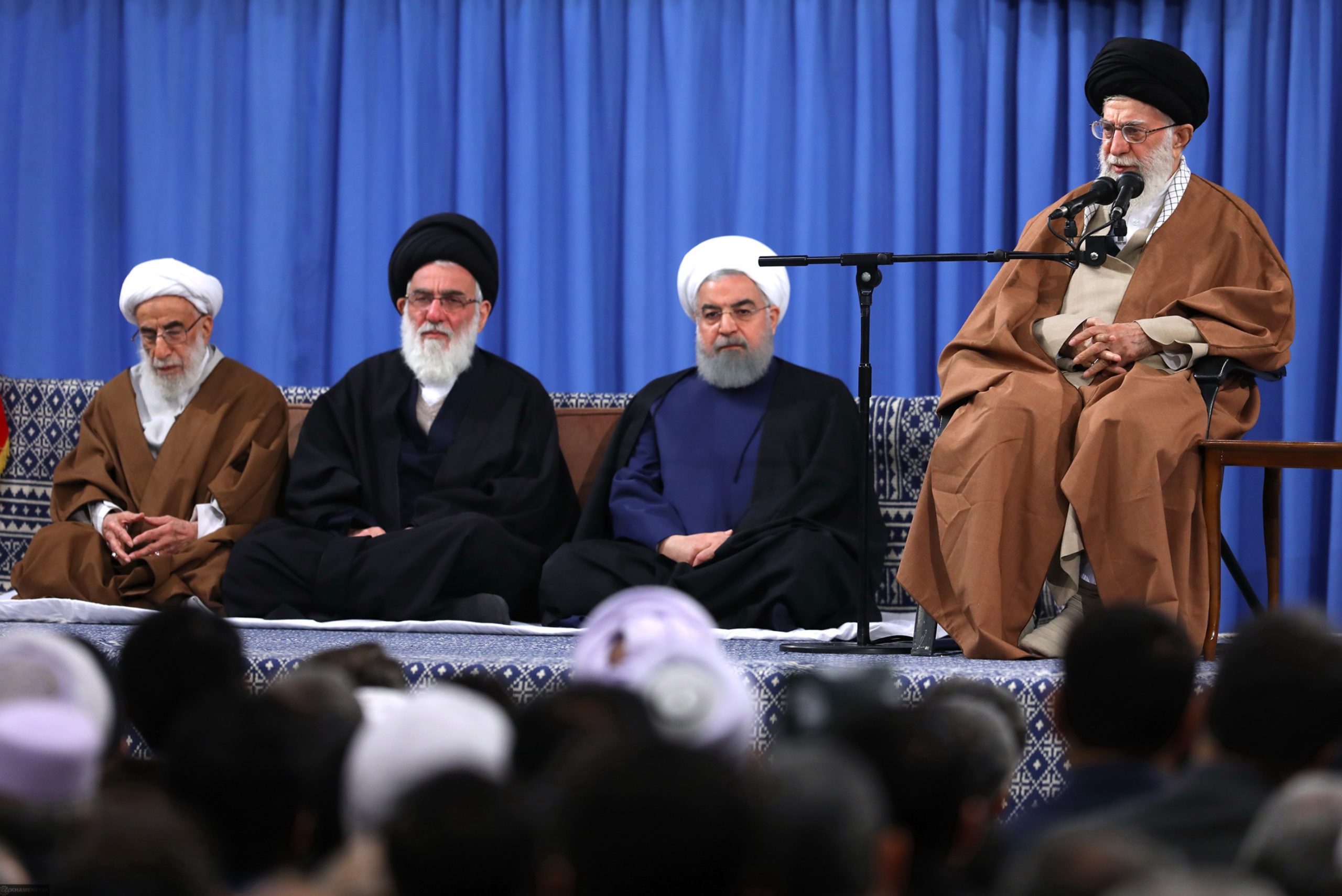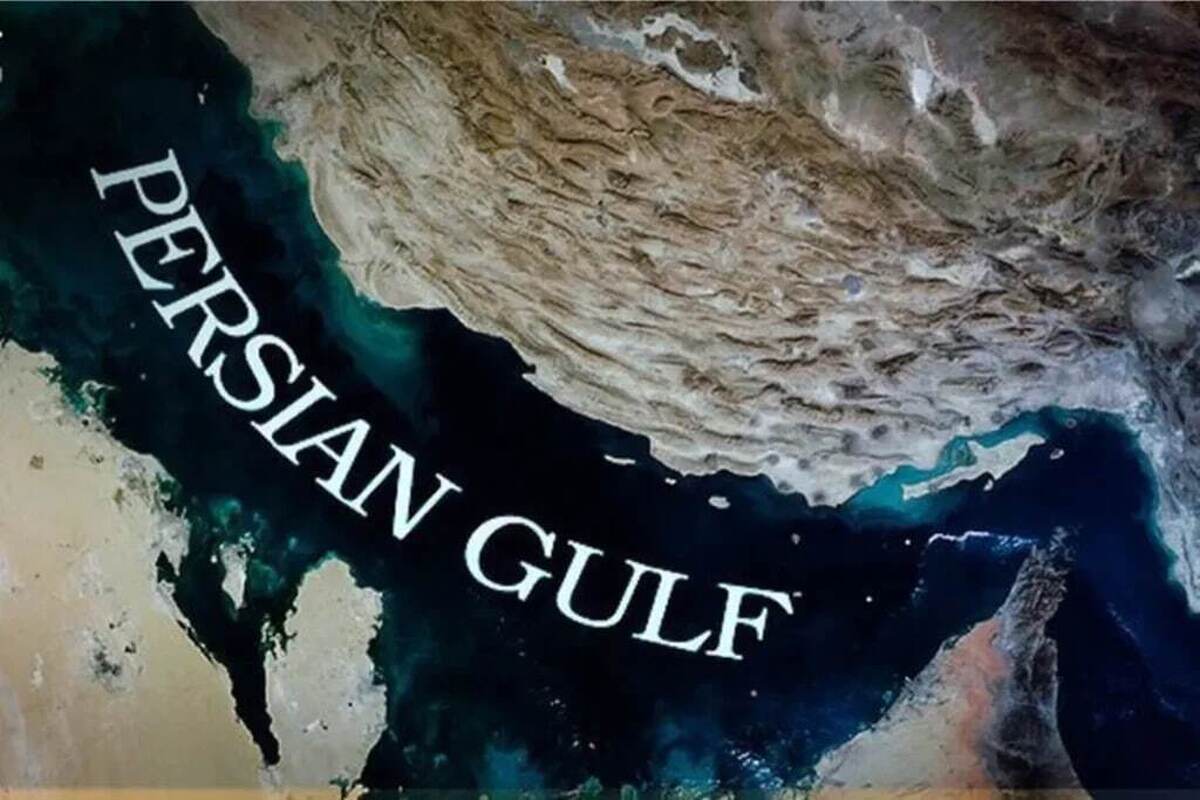
Pandemic Exposes the Paranoid Style of Iran’s Supreme Leader
By Tzvi Kahn on April 9, 2020
Iran’s supreme leader wants you to know that it’s not his fault.
On March 22, as the coronavirus pandemic continued to ravage Iran, Ayatollah Ali Khamenei suggested that the United States bore responsibility for his nation’s plight. In a speech rejecting US offers of medical aid, Khamenei declared—echoing a claim first promulgated by Chinese officials—that America may have created the virus in a deliberate effort to target Iranians.
“I do not know how real this accusation is, but when it exists, who in their right mind would trust you to bring them medication?” Khamenei said on the same day his government announced 21,638 coronavirus infections and 1,685 deaths in Iran to date. “Possibly your medicine is a way to spread the virus more.”
It’s hardly the first time Tehran has promoted conspiracy theories.
Khamenei asserted that America created ISIS and al-Qaeda in order to sow division among Muslims. He argued that Washington was behind the November 2015 terror attack in Paris, where ISIS killed 129 people. He claimed that Iran’s enemies—chiefly the United States—“planted the Zionist regime in the region so that they can create discord and busy regional countries with themselves.” He contended that Sunni Arab nations opposed to Iran constitute a tool of the West, stating that Iran’s enemies “sometimes use certain Islamic countries to say and do what they want.”
Such conspiracy theories do not merely seek to deflect blame for the failures of the regime, which has badly mismanaged the coronavirus crisis, the economy, the environment, and a range of other policy issues. Rather, they also reflect deeply felt convictions that lie at the heart of the regime’s radical Islamist ideology.
According to this worldview, the United States and Iran remain locked in a permanent struggle for the soul of the Middle East. Shiite Iran, Khamenei believes, amounts to the vanguard of authentic Islam in a region corrupted by Western influence and values.
In this context, America poses not only a physical threat but also a spiritual threat: through cultural and political infiltration, it seeks to transform the Middle East into a secular, godless region marked by violence, greed, and promiscuity. In the regime’s eyes, both Israel and the Sunni Arab states are agents of Washington, which secretly guides and manipulates their actions as part of a nefarious plot to overthrow Iran’s regime. Thus, America’s defeat is both a political objective and a religious imperative.
Waging war against the United States “is among our fundamental duties,” Khamenei affirmed in an August 2015 speech. “It is one of the principles of the Revolution. If fighting against arrogance does not take place, it means that we are not followers of the Holy Quran at all.” America, he declared in an October 2015 address, “is a transgressor by nature. It is in the nature of world-devouring powers to transgress, to advance, to occupy, and to dig in their claws.”
In another speech a month later, he asserted—citing a statement by the Islamic Republic’s founding father, Ayatollah Ruhollah Khomeini—that America “was behind all problems” and lies at “the root of all evil things.” “If they could destroy the Islamic Republic,” Khamenei added, “they will not hesitate even for a moment.”
This Manichean vision, rooted in an inflated perception of American omnipotence, omnipresence, and moral incorrigibility, reflects what the late American academic Richard Hofstadter dubbed the “paranoid style” of politics.
“The paranoid spokesman,” he writes in a famous 1964 essay, “sees the fate of conspiracy in apocalyptic terms—he traffics in the birth and death of whole worlds, whole political orders, whole systems of human values. He is always manning the barricades of civilization.” Moreover, unlike “the rest of us, the enemy is not caught in the toils of the vast mechanism of history, himself a victim of his past, his desires, his limitations. He wills, indeed he manufactures, the mechanism of history, or tries to deflect the normal course of history in an evil way.”
Hofstadter wasn’t writing specifically about Iran, but he notes that the “paranoid style is not confined to our own country and time; it is an international phenomenon.” And in the case of contemporary Iran, the Islamist regime clearly regards itself as the historical counterweight to America, defending nothing less than Islamic civilization itself from an evil and imperialistic superpower.
Tehran thus adopts a paranoid style that finds expression in a toxic fusion of religious millenarianism and old-fashioned conspiracy theories, all of which seek to demonize the enemy while simultaneously explaining why Iran’s counter-efforts have yet to yield sufficient results. In this sense, Iran’s paranoid style expresses both weakness and strength. It lionizes America but also lionizes Iran by declaring that Iran, with the help of God, will eventually—inevitably—overcome America’s predations.
This mentality helps explain Tehran’s bungled response to the coronavirus. Khamenei’s attribution of the pandemic to a US campaign of biological warfare seeks not merely to excuse his own failure to prevent its spread. Rather, it also implicitly conveys defiance. Because Khamenei regards Iran’s victory over America as inexorable, the perceived might of Washington would make the Islamist regime’s triumph that much more impressive.
In the meantime, the Iranian people will continue to suffer the consequences of the rapidly spreading virus. Unlike the myopic regime that leads them, Iranians know where the ultimate fault truly lies.
Source: Providence Magazine



